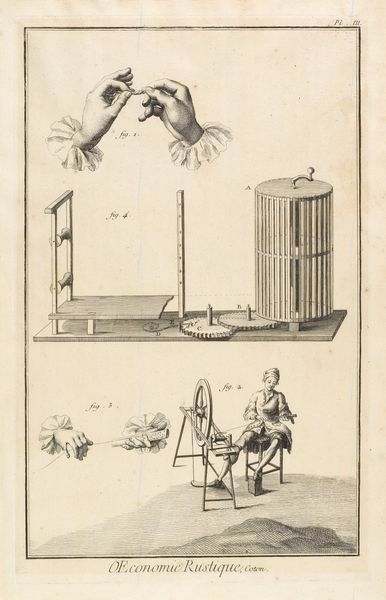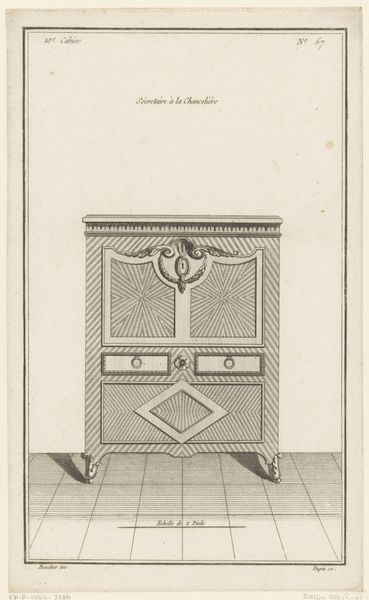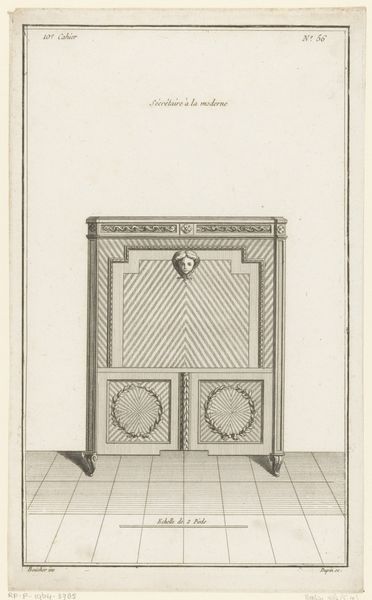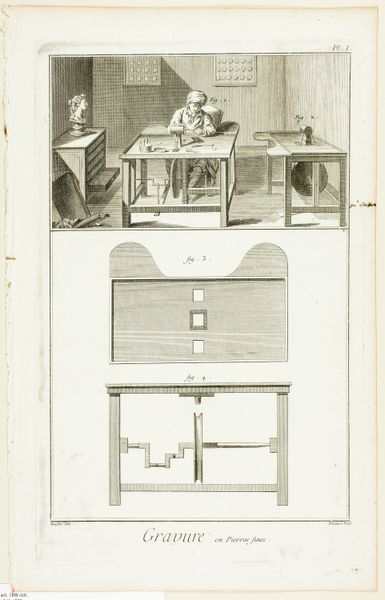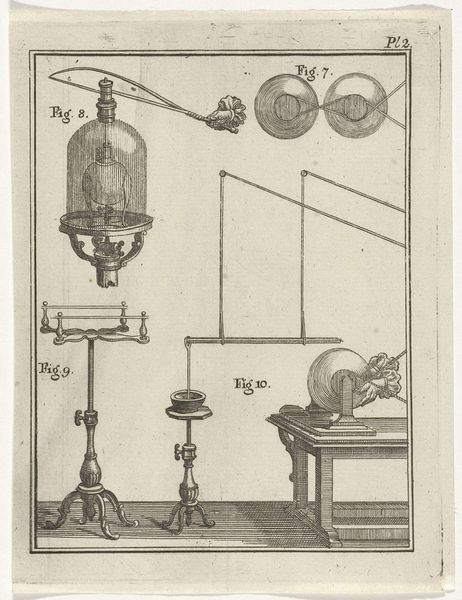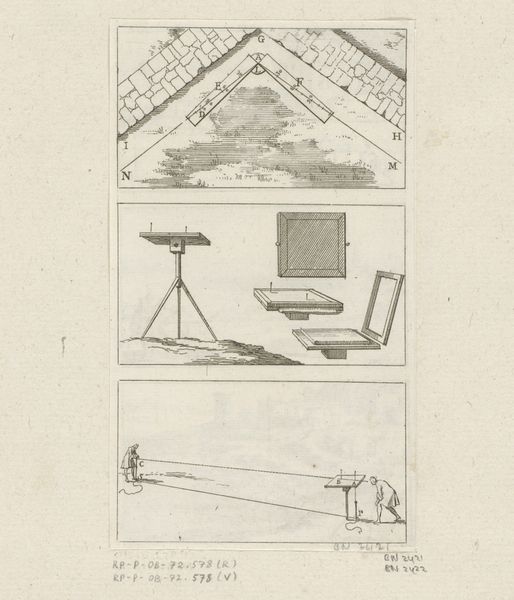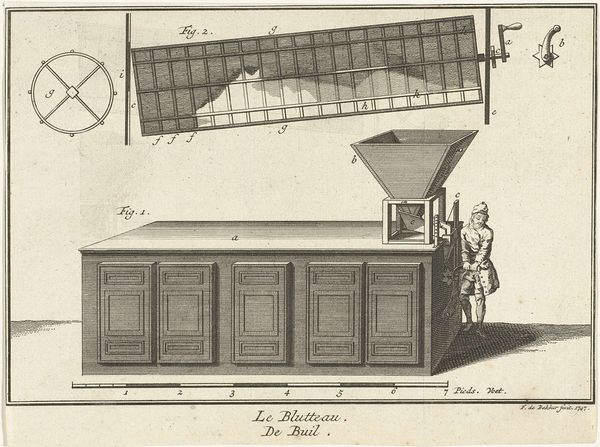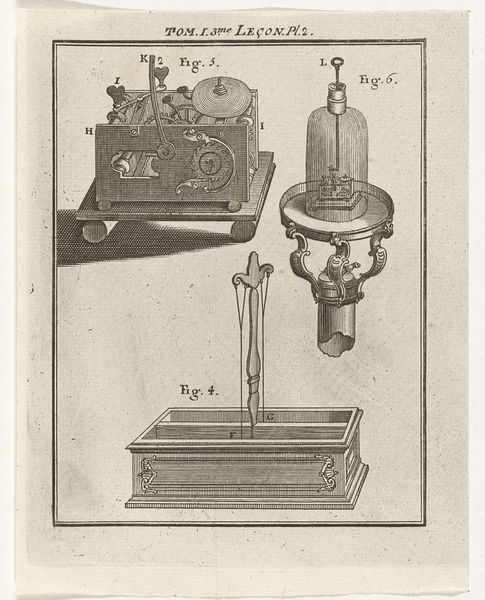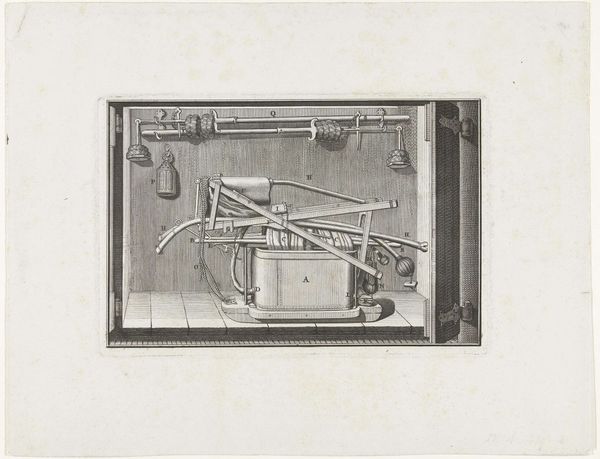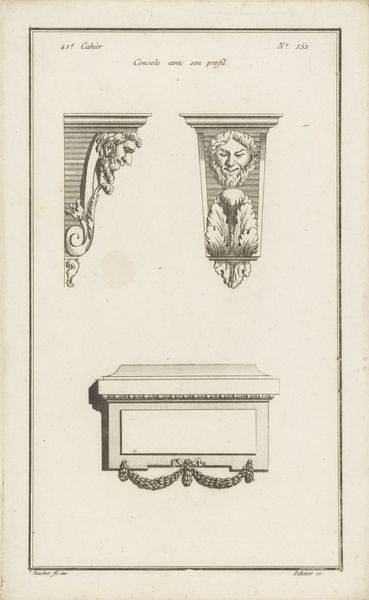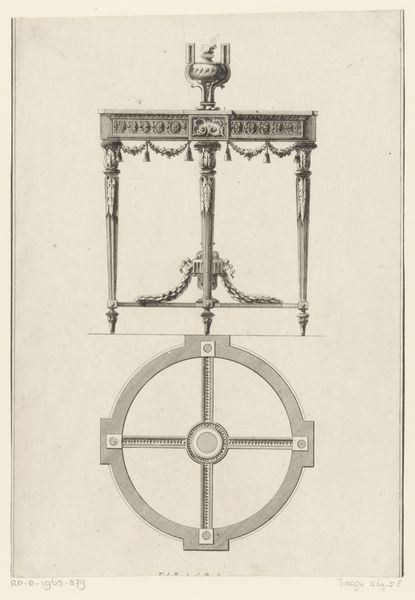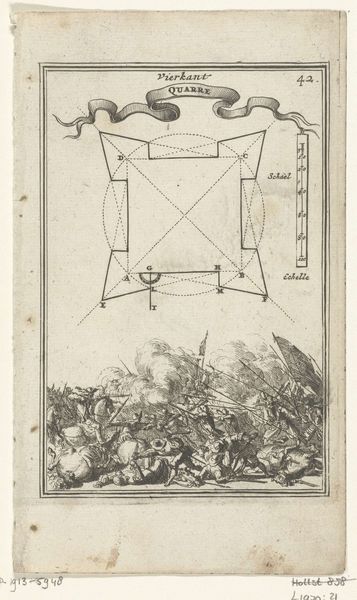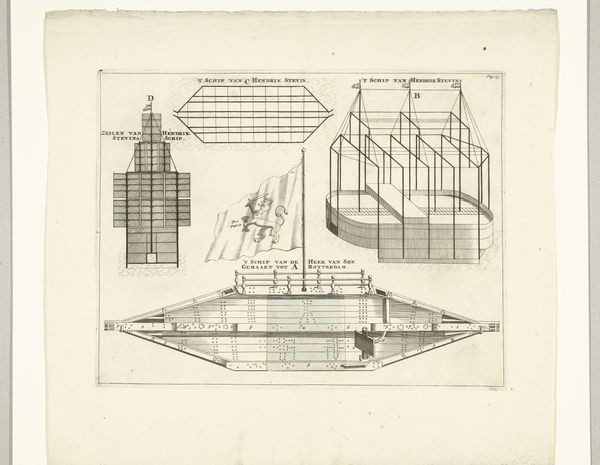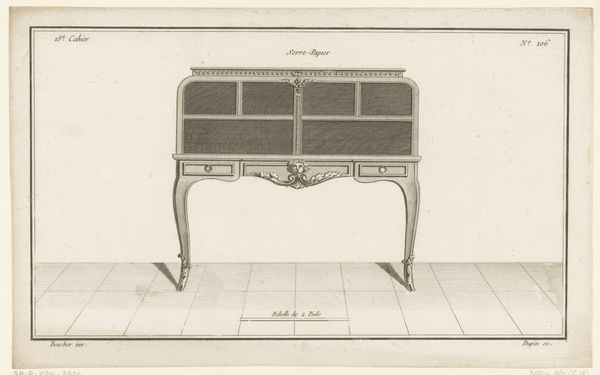
drawing, print, engraving
#
drawing
#
aged paper
#
blue ink drawing
# print
#
old engraving style
#
geometric
#
line
#
sketchbook drawing
#
history-painting
#
academic-art
#
engraving
Dimensions: height 158 mm, width 127 mm
Copyright: Rijks Museum: Open Domain
Editor: This is "Voorwerpen voor natuurkundig onderzoek," or "Objects for Physical Research," an engraving by Nicolaas van Frankendaal, dating back to 1759. It's currently housed at the Rijksmuseum. It feels very precise and technical. What story do you think this image is trying to tell, considering its historical context? Curator: I see this engraving not just as a depiction of scientific instruments, but as a reflection of the Enlightenment's values. Consider the social and intellectual context: the 18th century was obsessed with reason and empirical observation. This image is deeply tied to the rising scientific authority during that period and how knowledge was being visually disseminated. How might the public have viewed engravings like these, especially concerning access to scientific understanding? Editor: So, it’s less about the objects themselves and more about what they represented for the time period? Were these images accessible to everyone, or were they meant for a specific audience? Curator: Accessibility is key here. While the scientific community was certainly a primary audience, engravings like this were also circulated among a growing middle class eager to engage with new ideas. These prints contributed to the democratization of knowledge, yet, the price point meant it wasn't a completely egalitarian system. Notice the detailed lines and precise rendering – what impact would this meticulousness have had on how the public viewed science? Editor: It definitely conveys a sense of authority and legitimacy. So, these images were tools in shaping public perception of science, making it seem more trustworthy and established. It’s fascinating to consider how art played a role in building trust in these institutions. Curator: Precisely. And reflecting on the art world’s endorsement, we see how images serve political and social purposes, far beyond simple representation. It also reveals the era's deep trust in reason and visual proof. Thinking about it, I am wondering now how this influenced the funding models for artistic endeavors, specifically illustrations. Editor: This conversation reframed how I perceive images like these. It’s no longer just a technical drawing, but a window into the cultural and political currents of its time.
Comments
No comments
Be the first to comment and join the conversation on the ultimate creative platform.
